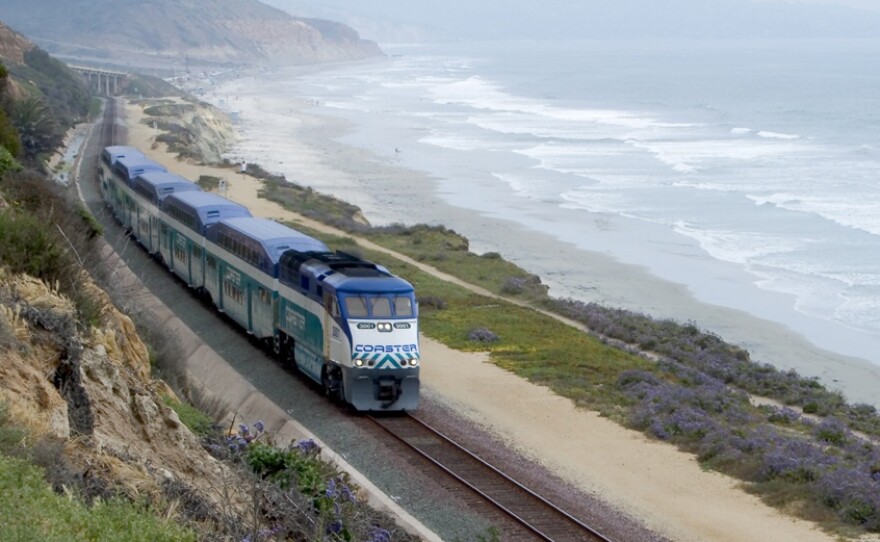The North County Transit District was awarded $627,000 by Caltrans for a climate resilience study, it was announced Thursday.
The funds from Caltrans' Climate Adaptation Planning — Sustainable Transportation Planning Grant Program will go toward NCTD's study of traffic infrastructure across its 1,020-square-mile service area.
"NCTD's service area spans urban, suburban, coastal and rural communities, each facing unique challenges related to changing climates," NCTD Board Chair Jewel Edson said in a statement. "It is critical that NCTD protect our region's transportation infrastructure to ensure access to essential public transit services now and into the future."
According to the transit agency, the purpose of the climate vulnerability and needs assessment is to identify and assess climate change risks and potential strategies for NCTD rail and bus infrastructure, facilities, and surrounding communities.
It will "evaluate the conditions of NCTD's service area and industry best practices and provide detailed recommendations, capital and financial plans, and an implementation strategy, along with a robust outreach effort," the statement reads.
Projects in NCTD's near future, either solo or with other agencies, include addressing coastal erosion on the Los Angeles-San Diego-San Luis Obispo Rail Corridor -- including the Del Mar Bluffs stabilization projects. Others include the San Dieguito Double Track Phase 2 project to replace and raise the elevation of a 107-year-old wooden rail bridge to "prevent the risk of flooding and ensure the long-term resiliency of the corridor," according to the agency.
NCTD is also initiating a project to install shelters and other shade infrastructure at bus stops to shield riders from excessive heat.







